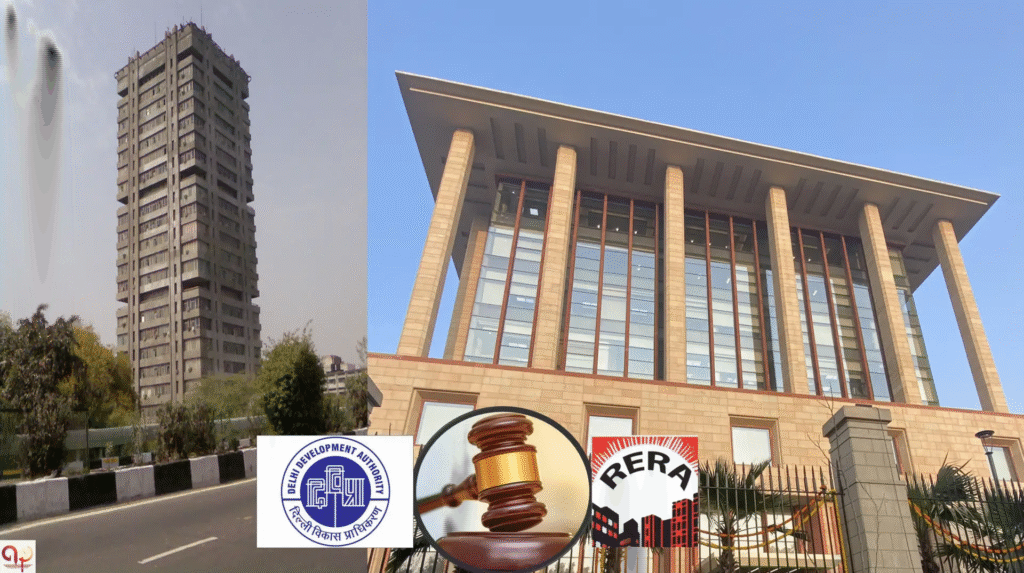In a significant legal development highlighting inter-agency friction, the Delhi Development Authority (DDA) has approached the Delhi High Court challenging a directive issued by the Real Estate Regulatory Authority (RERA), which mandates the registration of DDA’s housing projects under the Real Estate (Regulation and Development) Act.

The DDA, a statutory body under the Delhi Development Act, 1957, has termed RERA’s directive as an “unauthorised assumption of jurisdiction” and an “overreach.” The authority argues that it is not a private real estate promoter but a government entity functioning under constitutional and parliamentary mandates. As such, it maintains that its housing projects should not be subject to RERA’s regulatory framework designed primarily for private developers.
Legal Context and Arguments
The DDA filed a petition before the Delhi High Court last month. A bench led by Justice Sachin Dutta has issued notices to both RERA and the Ministry of Housing and Urban Affairs (MoHUA) seeking their responses.
Senior advocate Ramesh Singh and DDA’s legal counsel Vrinda Kapoor Dev, representing the authority, argued that the DDA’s functions are governed by the Delhi Development Act and related rules such as the Nazul Rules, 1981, and the DDA (Management and Disposal of Housing Estates) Regulations, 1968. These legal instruments already subject DDA to robust oversight, accountability, and audit frameworks under the Government of India.
“The Delhi Development Authority is an instrument of state policy, not a commercial builder,” the plea stated. “Requiring it to register like a private builder undermines its statutory position and autonomy.”
Dispute Over Project Registration
RERA’s mandate requires all promoters—including government agencies—to register their housing projects before marketing or selling. This includes the submission of documents such as project approvals, land ownership details, litigation status, and project timelines.
However, the DDA argues that it is itself the competent authority that sanctions plans and approvals for its own projects. As such, requiring DDA to submit such documentation is redundant and disregards the legal status conferred on it by Parliament.
“RERA’s demand that DDA register its super luxury housing project in Dwarka prompted the legal move,” a senior DDA official stated. “We are not avoiding transparency, but the mechanism should respect the DDA’s statutory framework.”
RERA’s Stand
Delhi RERA maintains that all entities involved in real estate development, regardless of their institutional nature, must adhere to the regulations under the RERA Act. The authority has reiterated that it is empowered to take action against developers—public or private—who fail to comply with registration requirements.
Legal experts suggest that this case could set an important precedent in defining the regulatory boundaries between different statutory bodies, especially when public agencies engage in activities typically associated with private developers.
Implications for Urban Development
This conflict raises crucial questions regarding the regulation of government-led housing initiatives. Should government authorities be exempt from rules that aim to protect homebuyers and ensure transparency in real estate? Or should uniform regulatory standards apply to all developers, including public agencies, when they participate in the housing market?
As Delhi continues to grapple with affordable housing shortages and increasing demand for urban infrastructure, the outcome of this legal challenge could reshape the way public-sector housing projects are regulated and delivered in India.
Also Read: NHAI Caps Maximum Projects per Engineer to Ensure Quality Supervision
